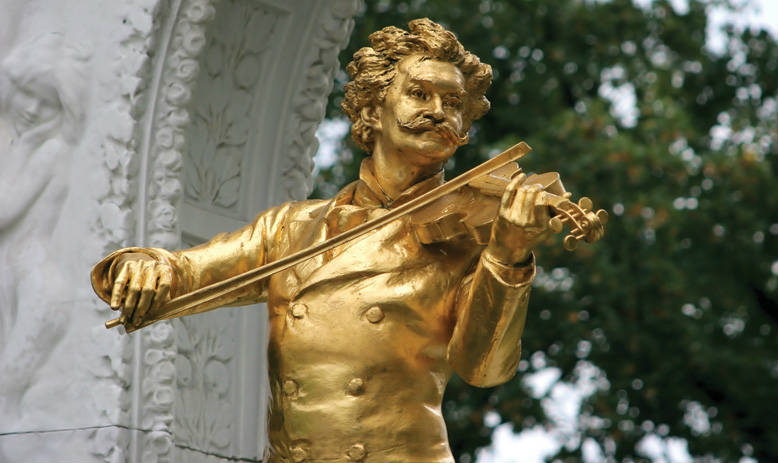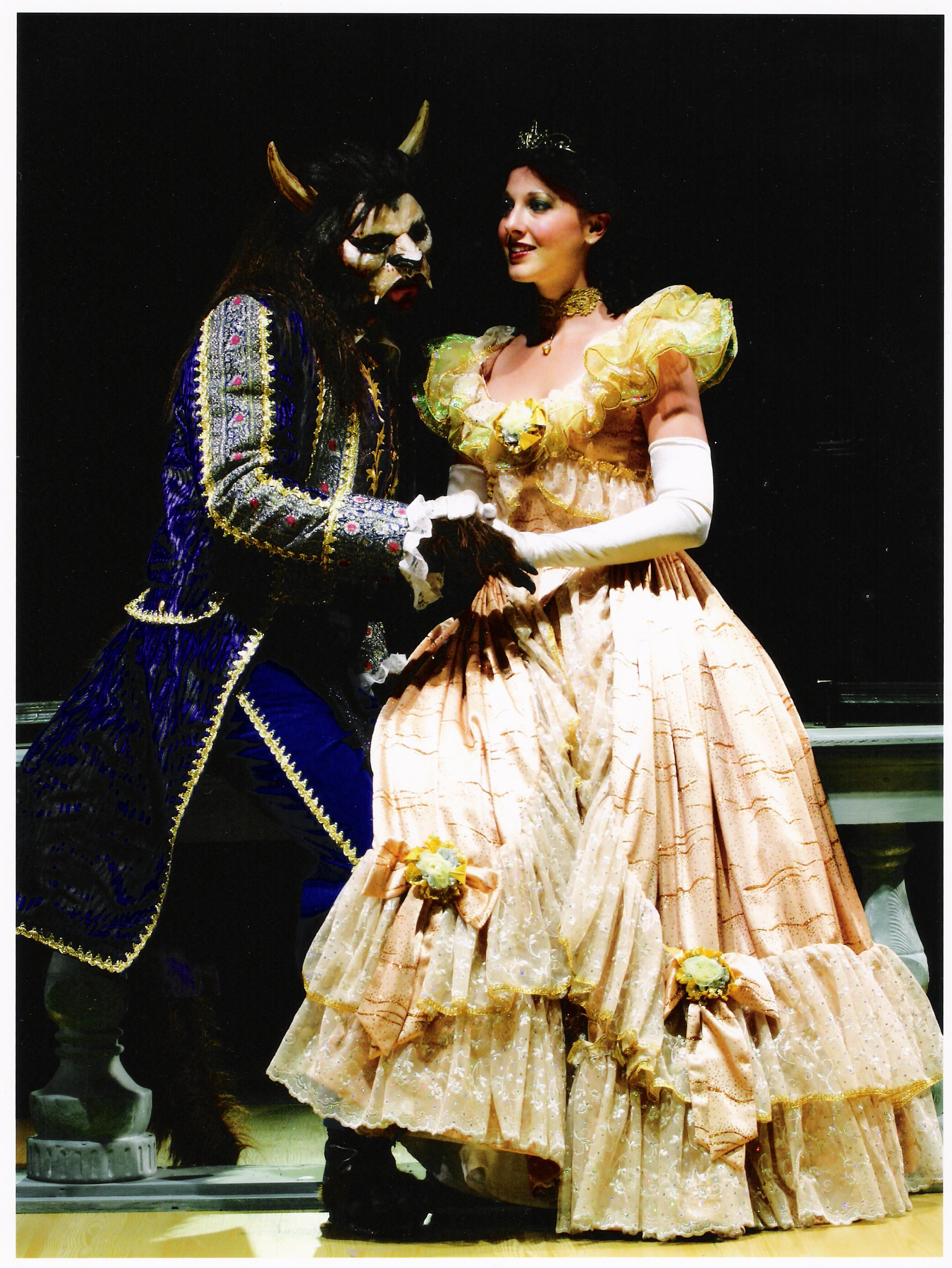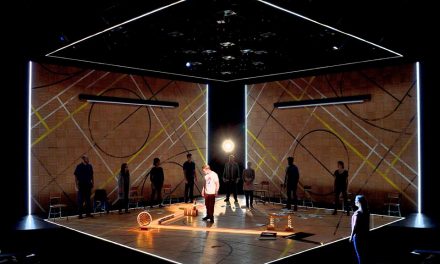Gilded bronze monument of Johann Strauss II in Vienna’s Stadtpark.
Classics Go To The Movies
Music Without Borders Series
Louisville Orchestra
Bob Bernhardt, conductor
Review by Annette Skaggs
Entire contents copyright © 2016 Annette Skaggs. All rights reserved.
I have mentioned before how excited I was for the Louisville Orchestra’s Music Without Borders series to begin. Since the beginning of the year, I have had the pleasure of attending many of the featured concerts held at various venues throughout the greater Louisville area. Recently, the orchestra paid a visit to the South End for the first time during the course of this neighborhood series: at the newish Conrad Bachmann Auditorium at Valley High School, they presented a delightful evening of music found in the movies and on television.
Maestro Bob Bernhardt has shared with the audience over the years that it was Stanley Kubrick’s 2001: A Space Odyssey, among other great films, that sparked his fascination with and enjoyment of classical music used in movies. Kubrick’s film includes Richard Strauss’ Also Sprach Zarathustra as well as Johann Strauss II’s “The Blue Danube.”
The evening began with George Frideric Handel’s Overture to Music for the Royal Fireworks, which is heard in the movie The Madness of King George and on television in The Ren & Stimpy Show (an animated program for which the Maestro confessed a fondness!). This Baroque style of music is the epitome of what we have determined to be “royal” music, with a strong horn section that offers a feeling of power and regal authority. Our talented troupe certainly did not disappoint in their execution.
Any fan of the film The King’s Speech or the television series Mozart in the Jungle would certainly have recognized the next piece, the Allegretto from Beethoven’s Symphony No.7. Hearing the intricate and intoxicating nuances of this piece, it is astounding to think that by the time Beethoven wrote this symphony, he was almost completely deaf. Control of dynamics is crucial to the piece. Beautiful themes stack layer upon layer, starting low with the violas and basses and culminating in a bright, triumphal melody. The orchestra nailed it.
I usually get a chuckle whenever a great piece of classical music crops up unexpectedly in a movie, as when the evening’s next selection, Johann Strauss II’s Emperor Waltz, is used in the films The Last Emperor and The Dirty Dozen. This is a waltz unlike any other. Instead of keeping to the usual ¾ time throughout, this one actually begins as a march, complete with a rat-a-tat-tat from the snare drums. I was reminded of another instance in which this celebrated waltz was used to memorable effect. Back in the days when Jan Hooks and Phil Hartman were on Saturday Night Live, they lip-synched to an old song called “Love is a Dream,” performed by Bing Crosby. The song borrowed heavily from the Emperors Waltz, as performed by Bing Crosby. The fact that I remember this so many years later after seeing the sketch only once is a testament to the power of music. The Louisville Orchestra certainly had me wanting to dance the night away with their interpretation.
There is a song synonymous with serenity and quietude that features in the films Seven Years in Tibet, Twilight and Ocean’s Eleven, as well as in countless television shows and cartoons… Can you guess what it might be? If you guessed Claude Debussy’s Clair de Lune, you are right. With beautiful violin and clarinet solos played by Julia Noone and Andrea Levine, respectively, this piece brought visions of moonlight dancing off a tranquil lake, dazzling in its brilliance.
Perhaps the most oft-heard piece in the classical canon would be Felix Mendelssohn’s “Wedding March” from A Midsummer Night’s Dream. Indeed, it is the most frequently requested processional music for brides and features prominently in movies like My Big Fat Greek Wedding and even in the vintage Warner Brothers cartoon Rabbit of Seville. There’s just something about that moment when the fanfare announces the arrival of the bride!
The last set of the evening revolved around one of my favorite genres of music, opera. It featured pieces heard in movies such as UP, The Bad News Bears, The Godfather, Part III and Moulin Rouge. When people talk about the ABC’s of opera they are typically referring to Aida, La Bohème and Carmen. We were lucky to hear a couple of excerpts from one of these Big Three, namely, the “Habanera” and the “Toreador Song” from Bizet’s Carmen. There was no denying the pull of excitement that came from the sultry “Habanera,” while the “Toreador Song” filled the audience with the fierce, intrepid spirit of the bullfight. Our Louisville Orchestra evoked powerful emotion masterfully.
Next came an oft-played selection from Cavalleria Rusticana, an opera in one act by Pietro Mascagni. Our charming and delightful Maestro incorrectly translated the opera’s title as “Rusty Horse” — in fact, it means “Rustic Chivalry.” I won’t go into detail about the plot, but suffice it to say that the selection performed, the Intermezzo, is perfectly placed within the frame of the opera. Reflective and vibrant tones rang forth through the whole of the audience, though it seemed it was a challenge for Maestro Bernhardt to keep the orchestra from rushing in a few spots.
The last piece was a treat: Jacques Offenbach’s Overture to Orpheus in the Underworld. Admittedly, I had not heard this selection in its entirety before, much less the whole piece, but I am delighted to have experienced it now. The first section featured a fantastic woodwind solo with a light and bouncy feel. The woodwinds shared the melody with a stirring cello solo before giving way as the entire orchestra joined in. The second section rushed forward before subsiding into a lovely violin solo performed by Julia Noone. The third movement sounded unmistakably like what we commonly refer to as the “Can-can.” Upon hearing the expert rendition of the Overture, I can say that this opéra bouffe is next on my list of music to sink my teeth into.
Finally, I must compliment the hard work that Deanna Hoying has put into the programs for the MWB series. It is wonderful to geek out over authoritative information about the composers and their respective works. The music history lover in me truly appreciates the care and research Ms. Hoying puts into her work.
Bravi!
Classics Go To the Movies
Music without Borders Series
Louisville Orchestra
Performed April 15, 2016
at Valley High School
10200 Dixie Highway
Louisville, KY 40272
louisvilleorchestra.org
Annette Skaggs is heavily involved as an Arts Advocate here in Louisville. She is a freelance professional opera singer who has performed throughout Europe and in St. Louis, Cincinnati, Boulder, Little Rock, Peoria, Chicago, New York and of course Louisville. Aside from her singing career, she has been a production assistant for Kentucky Opera, New York City Opera, and Northwestern University. Her knowledge and expertise have developed over the course of 25+ years’ experience in the classical arts.





